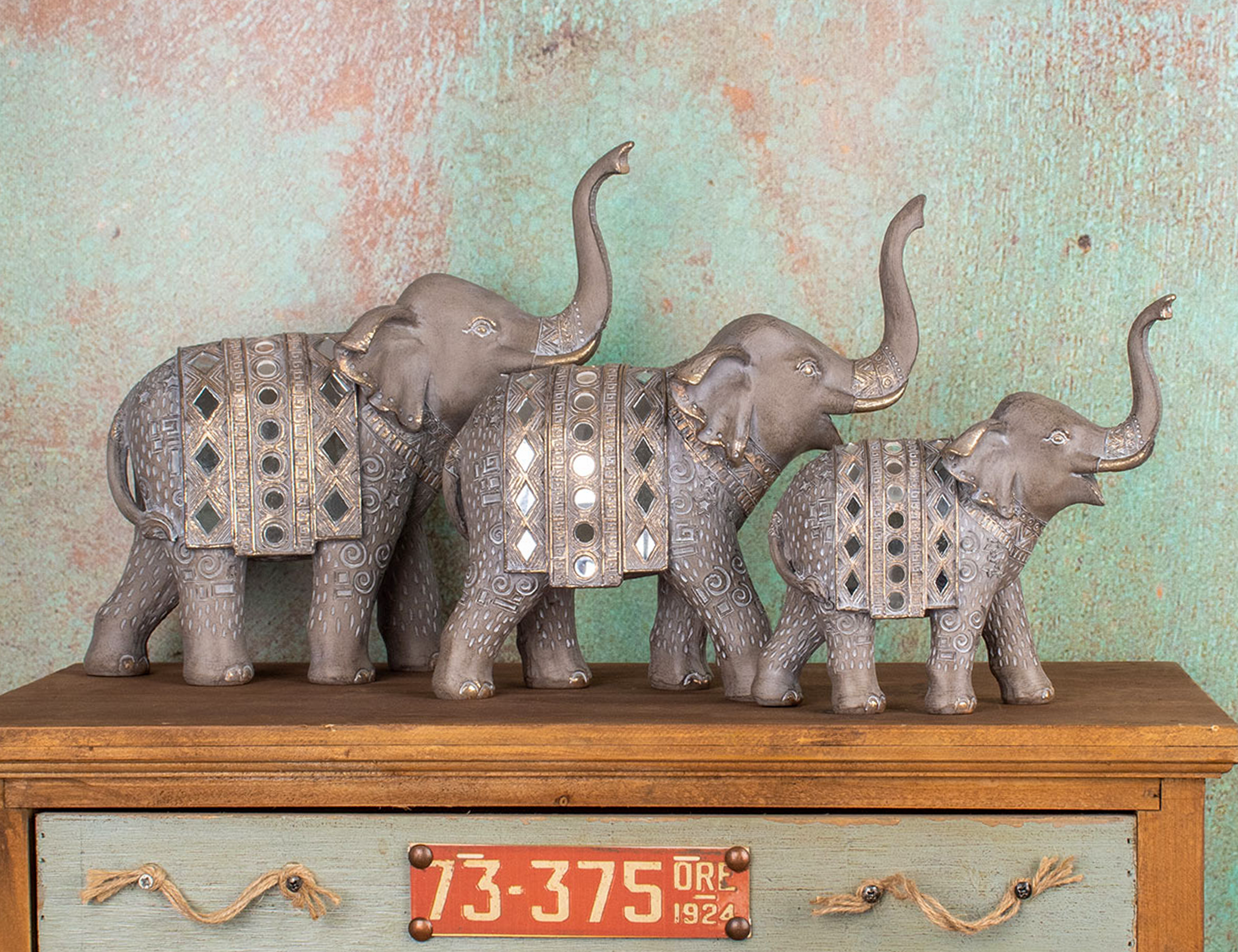Elephants in Decoration: What do they mean and how to use them?
Decorative elephants have become very popular in recent
years, especially due to their relationship with the philosophy of Feng Shui.
To introduce ourselves to this theme, we´ll do a brief
explanation of Feng Shui. It is an ancient technique, with its origin in Asia
that seeks to balance energy through the distribution and orientation of
spaces.
In Asian culture, elephants symbolize the divine and
spiritual. Ceremonies are often held in which people make offerings to
elephants by washing them and smearing them with oils and colors during
celebrations. It is a way of asking that their families and / or community to
be blessed with luck and fortune.
In this culture, the meaning of an elephant runs much deeper
than one can imagine and has helped shape the eastern world as we know it
today.
However, you should know that ornamental elephants vary in
their meaning depending on several factors.
How can you use this symbol to enhance its energy in your home or office?
Most often, elephants are depicted with their trunk facing upwards as this symbolises good luck, wisdom and protection. If the trunk is pointing downwards, it represents longevity and stability.
Placing one or two elephant figures on the front door of your home will bring good luck into the home, as well as reinforcing the protection and strength of the family. The elephant will become the protector and guardian of the home, but it will also help to maintain financial abundance within the home. To do this, place a banknote curled up in the trunk.
An elephant placed in the bedroom strengthens the bond of love and fidelity between the couple. If there is a desire to increase or strengthen the family, one or several smaller statues should be placed in the bedroom as a symbol of fertility.
Wearing an elephant in the workplace or office will help you channel your intentions and desires to enhance leadership qualities and perseverance, as well as professional growth.
Placing one or two elephant figures on the front door of your home will bring good luck into the home, as well as reinforcing the protection and strength of the family. The elephant will become the protector and guardian of the home, but it will also help to maintain financial abundance within the home. To do this, place a banknote curled up in the trunk.
An elephant placed in the bedroom strengthens the bond of love and fidelity between the couple. If there is a desire to increase or strengthen the family, one or several smaller statues should be placed in the bedroom as a symbol of fertility.
Wearing an elephant in the workplace or office will help you channel your intentions and desires to enhance leadership qualities and perseverance, as well as professional growth.

